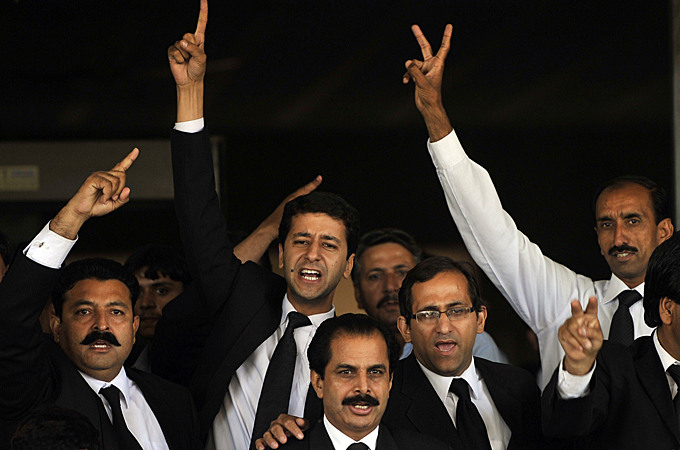Pakistan swears in new prime minister
Raja Pervez Ashraf secures premiership in national assembly after a court issues arrest warrant for the first candidate.

Raja Pervez Ashraf has been elected Pakistan’s new prime minister and sworn in by the president, just days after the Supreme Court had dismissed Yousuf Raza Gilani for contempt.
Ashraf secured the premiership on Friday with 211 votes cast in his favour in the 342-member national assembly, where the main Pakistan People’s Party leads a majority coalition, speaker Fehmida Mirza announced.
A senior party official, Syed Khurshid Shah, had told a news conference earlier in the day that the government could call an election before its mandate expires early next year.
“This is election year and we are going towards elections,” Shah said.
“If we have committed some mistakes or did not fulfill our manifesto, then the decision should be left to the people of Pakistan.”
Ashraf has been dogged by allegations of corruption and controversy from his tenure as water and power minister. He served as information technology minister until the Supreme Court dismissed prime minister Yousuf Raza Gilani for contempt on Tuesday.
Zardari had nominated loyalist Makhdoom Shahabuddin to form a new cabinet following intense horse trading with members of the fractious ruling coalition, but an anti-narcotics court issued a warrant for his arrest just hours later.
“The vote was easy win for Ashraf, as the opposition candidate only got 89 votes,” Al Jazeera’s Kamal Hyder, reporting from Pakistan, said.
“It may be good news for the ruling party, but across Pakistan there may be considerable dismay. A large section of Pakistan is without electricity … The question is how many weeks will this new prime minister last.”
Early polls likely
Earlier in the week, the PPP said it “accepted” the supreme court order against Gilani.
| IN DEPTH | ||||||||
|
|
Gilani, the nation’s first-ever sitting prime minister to be convicted, can have the verdict reviewed, but has no formal appeal process available to him.
The PPP is the largest party in parliament but does not have a majority, so its coalition partners will insist on concessions for their support for a new premier.
Ashraf likely will not have long in power as the government must call elections before March 2013.
Under the constitution, polls can only be held under a caretaker government, which must be in place three months before election day.
Many analysts have speculated that the current political upheaval may expedite the polls, possibly in November.
Ashraf will also come under immediate pressure from the Supreme Court to write to Swiss authorities, asking them to reopen investigations into Zardari.
The court has been criticised by some for taking political decisions and jeopardising the democratic process in Pakistan.
The Pakistan People’s Party government, dogged by corruption allegations, has been locked in a stand-off with the judiciary for years, accused of working behind the scenes with the military and the political opposition.
